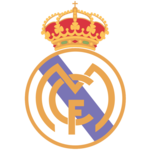Kicker (magazine)
 | |
| Editor | Rainer Holzschuh[1] |
|---|---|
| Categories | Sports magazine |
| Frequency | Twice weekly |
| Publisher | Olympia-Verlag GmbH |
| First issue | 14 July 1920 |
| Based in | Nuremberg, Germany |
| Language | German |
| Website | kicker.de |
kicker Sportmagazin (commonly kicker) is Germany's leading sports magazine and is focused primarily on football. The magazine was founded in 1920 by German football pioneer Walther Bensemann and is published twice a week, usually Monday and Thursday, in Nuremberg. The Monday edition sells an average of 240,000 copies, while the Thursday edition has an average circulation of about 220,000 copies (2005 figures).
The magazine also publishes a yearbook, the kicker Almanach. It was first published from 1937 to 1942, and then continuously from 1959 to date.
History

The magazine kicker first appeared in July 1920 in Konstanz, Germany. The magazine headquarters was originally in Stuttgart but moved to Nürnberg[2] in 1926. During World War II, the magazine merged with the publication Fußball, and was eventually discontinued in fall 1944. After the war, the magazine was again published (under the name Sport) by the newly incorporated Olympia-Verlag publishing company. Former chief editor Friedebert Becker again began publishing kicker in 1951, and for a number of years, both kicker and Sport appeared at the same time. In 1966, kicker was sold to Axel Springer AG. In 1968, Olympia-Verlag in Nuremberg acquired kicker and merged it with Sportmagazin, which had been published twice weekly since 1952. The first issue of the newly founded kicker-sportmagazin was released on 7 October 1968. Beside the two weekly publications, kicker provides a digital edition since 2012. The online version of kicker.de offers a broad live ticker for over 80 different international leagues.[3] A mobile version of kicker.de can be found among others in the mobile portal of T-Mobile, Vodafone, O2 and E-Plus. In addition, the online magazine has three apps in the iTunes store.[4]
Magazine
The modern version of kicker covers a number of sporting competitions and events, including:
- The German Bundesliga, 2. Bundesliga, 3. Liga, and Regionalliga
- The German DFB-Pokal
- The German national (football) team and women's national (football) team
- The German Women's Bundesliga
- Various European leagues and competitions, including the Premier League, La Liga, Serie A, and Ligue 1
- Various international football leagues
- Formula One racing
- The Olympic Games
- eSports and competitive video gaming
- Various other sporting events, depending on on-going competitions
Trivia
- kicker is a founding member of European Sports Magazines, an association of football publications.
- kicker annually awards the most prolific scorer of the Bundesliga with the kicker Torjägerkanone (kicker Scorer Cannon) award. It is equivalent to the Pichichi Trophy in Spanish football.
List of German football ranking by Kicker
The ranking of the German football is an assessment of football players of the German Bundesliga, the kicker - sports magazine is carried out. In January 1956, was first produced and published a ranking, since there are (with few exceptions) each year in the summer and in the winter break of the season a new edition of the traditional ranking.
Rangliste des deutschen Fußballs/2010er (in German)
Greatest Football Clubs of the 20th Century

In 1998, kicker published a list of the best football clubs of the 20th century. The list was based on the votes of specialists (Giovanni Trapattoni, Johann Cruyff, Udo Lattek, Just Fontaine etc.) to name the five best clubs and provide arguments in support thereof. Not all experts stuck to the allotted number of picks. For example, Johann Cruyff decided to choose three best teams instead - Ajax, Milan and Dynamo Kyiv. Among the reasons for picking the Ukrainian club ahead of teams like Real Madrid, Cruyff pointed out team's consistency in staying at the top level, especially throughout 70s and 80s while doing so with "homegrown" players.[5]
The fact that the team stays consistent is even more surprising as they don't have "foreigners" and Lobanovsky builds his team every time from the homegrown "material". Kyiv for me is one of the European football standards.
- Each club's trophies and Ballon d'Or winners are shown up until 1999
Greatest Football Clubs (1863-2014)
In 2014, the magazine created a new list of the best clubs in history. This time it was formed based on the opinions of the magazine's editors. The list was based on criteria as the clubs' history, achievements at international stage, titles won and the career of its own players.[6][7]
References
- ^ "Impressum kicker sportmagazin". kicker.de (in German). Retrieved 24 February 2018.
- ^ Western Europe 2003. Psychology Press. 30 November 2002. p. 294. ISBN 978-1-85743-152-0. Retrieved 28 February 2016.
- ^ "kicker – a long standing magazine". Retrieved 13 February 2012.
- ^ "kicker-online – always the latest informations". Retrieved 10 January 2012.
- ^ Valeriy Lobanovsky and Dynamo Kiev.
- ^ Kicker-Sportmagazin, ed. (March 2014). "Die Wappen der Vereine und ihre Geschichte". Die legendären Weltklubs (in German). OCLC 3796265. Archived from the original on 22 March 2014.
{{cite book}}:|work=ignored (help) - ^ Guilherme Feijó (20 March 2014). "Revista alemã faz ranking dos maiores clubes do planeta, mas 'esquece' sul-americanos" (in Portuguese). Archived from the original on 22 March 2014.
{{cite web}}: Unknown parameter|deadurl=ignored (|url-status=suggested) (help)
External links
